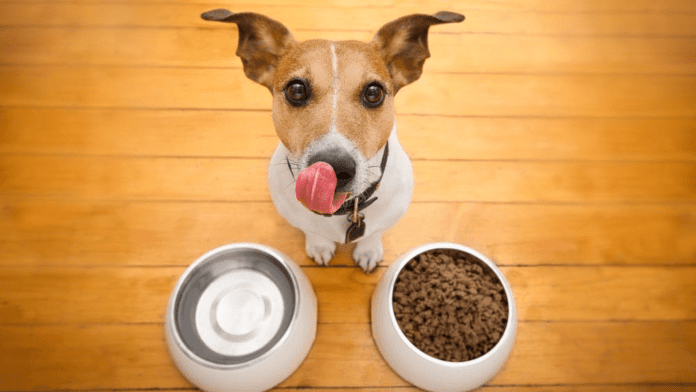A dog’s diet plays a vital role in its overall health and well-being. Whether you’re considering a new diet due to health reasons, allergies, or simply wanting to provide better nutrition, transitioning your dog to a new diet requires careful planning and consideration. One of the common challenges during this process is the risk of upset stomachs and digestive issues. In this guide, we will explore the necessary steps and precautions to ensure a successful and smooth transition for your furry companion.
Understanding the Importance of a Gradual Transition:
Abrupt changes in a dog’s diet can lead to gastrointestinal upset and discomfort. Dogs have sensitive digestive systems, and introducing new food suddenly can result in diarrhea, vomiting, and other digestive issues. To prevent this, a gradual transition is essential. Begin by mixing the new diet with the current one and gradually increasing the proportion of the new food over several days or weeks, depending on your dog’s tolerance.
Selecting the Right Diet for Your Dog:
Before transitioning, it’s crucial to select the right diet for your dog. Factors to consider include age, breed, size, activity level, and any existing health conditions. Consult with your veterinarian to determine the best dietary option that meets your dog’s specific needs. Whether you’re switching to a commercial dog food brand, a raw diet, or a homemade meal plan, ensure it meets the necessary nutritional requirements for your pet.
Consulting with Your Veterinarian:
A veterinarian’s guidance is invaluable when it comes to transitioning your dog to a new diet. They can assess your dog’s health and recommend a suitable diet based on their individual requirements. Additionally, they can provide tailored advice on the transition process and any potential dietary adjustments needed to avoid gastrointestinal issues.
Phasing in the New Diet:
A successful transition involves a gradual phasing in of the new diet. Start by introducing a small amount of the new food while maintaining the majority of the old food. Monitor your dog’s reaction to the new diet and make adjustments as necessary. Slowly increase the proportion of the new food over several days or weeks until your dog is exclusively on the new diet.
Monitoring Your Dog’s Health:
Throughout the transition period, keep a close eye on your dog’s health and behavior. Look for any signs of discomfort, gastrointestinal issues, changes in energy levels, or alterations in stool consistency. If you notice any concerning symptoms, consult your veterinarian promptly.
Identifying Allergic Reactions:
Some dogs may have allergies or sensitivities to certain ingredients in new diets. Common allergens include grains, soy, dairy, and specific proteins. Watch for signs of allergies such as excessive itching, skin rashes, ear infections, or digestive problems. If you suspect an allergy, consult your veterinarian to explore alternative dietary options.
Maintaining Consistency:
Dogs thrive on routine and consistency, especially when it comes to their diet. Once you have successfully transitioned your dog to the new diet, aim to maintain a regular feeding schedule. Avoid frequent changes in their diet unless medically necessary, as this can disrupt their digestive system and lead to stress or discomfort.
Hydration Is Key:
Ensure your dog has access to fresh, clean water at all times. Adequate hydration is crucial during diet transitions and can help prevent constipation or dehydration, which may occur if your dog is reluctant to eat the new food.
Addressing Reluctance to Eat:
Some dogs may be picky eaters or show reluctance to eat the new diet. If this happens, try to mix in some of their old food to encourage them to eat. Gradually decrease the proportion of the old food until your dog becomes more comfortable with the new diet.
Avoiding Table Scraps and Treats:
During the transition process, it’s essential to avoid feeding your dog table scraps or excessive treats. These can interfere with the transition, causing digestive upset or creating a preference for human food over their new diet.
Final Thoughts:
Transitioning your dog to a new diet requires patience, careful planning, and consideration of your dog’s individual needs. By following a gradual transition process, seeking veterinary guidance, and monitoring your dog’s health and reactions, you can avoid upset stomachs and ensure a successful change in their diet. Remember that each dog is unique, and it may take time to find the best diet that suits your furry companion’s specific requirements. With proper attention and care, you can provide your dog with a balanced and nutritious diet that contributes to their overall health and happiness.





